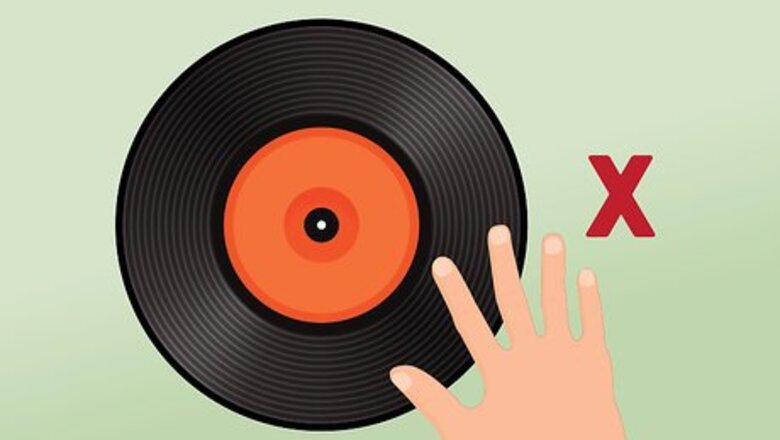
views
X
Research source
Whether you’re an avid collector of records, or you just have a few vinyls gathering dust on a shelf, there are many ways to prep your records and sell them for all they’re worth.
Preparing Your Record Collection
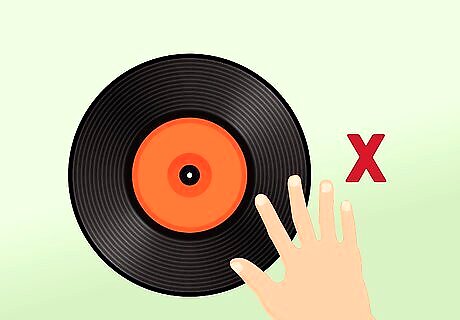
Determine if it is a rare or valuable record. It’s very important to know if your record is an uncommon find which means it will be worth more money. Look for rock and roll and R&B 45s and EPs with original sleeves, or first pressings of albums. Rock and roll and R&B 45s with picture sleeves that were pressed in the 1950’s have a value of at least $10, with many being valued at more than $100. EPs were only made in the 50’s and 60’s. Rock and roll and R&B 45s with the cardboard sleeves are worth at least $20, with many being worth more than $200. First pressings of albums have more value than second, third, or subsequent pressings. They are referred to as the “originals” that were purchased when the record first hit the charts. Pressings after the first can usually be identified by differences in the cover or the color of the label.
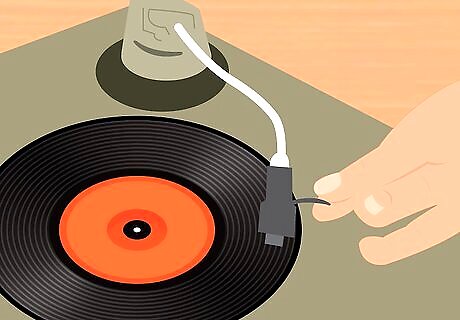
Identify the condition of the record. The condition of records are commonly determined by the Goldmine Standard. It ranges from very mint on the high end, to fair on the low end. The condition is judged on play grading and visual grading. There are professionals, both online and in music stores, who can assist in helping you grade the condition of your records if you’re not experienced. When determining the play grade of the record, listen to the record in its entirety, listening for needle wear, scratches, bubbles, or other defects in the vinyl. Use a lumen light source, such as natural sunlight or halogen lamps, to look for any visible defects to both the vinyl and sleeve. Avoid selling used copies with missing sleeves, that are noisy or scratched when played, or that have writing or tape on the sleeve or label.
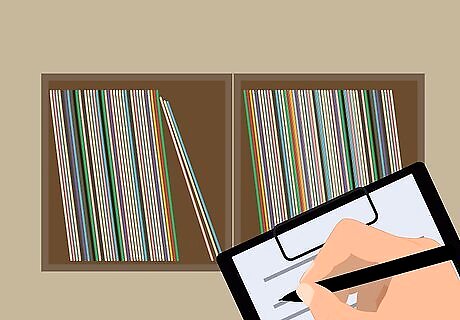
Catalog your records. Once you’ve gone through your records and determined which albums you want to sell, make a list of the album title, band/artist name, and condition. Also include important identifying information such as a rarity, first pressing, etc.
Determine a Fair Selling Price
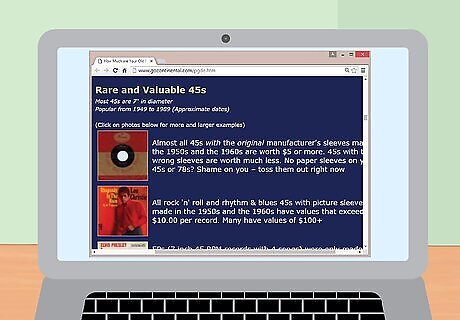
Use an online price guide database. There are many online pricing guides which assist in providing a report on the current market-value of records of various grades or conditions. Use a database like iGuide which is maintained by Jon R. Warren, who has been a leading authority on collectibles since 1985.
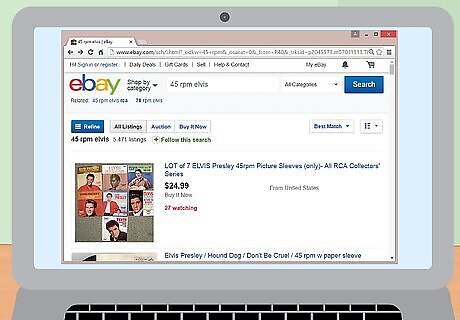
Search eBay for comparable items. The buy-and-sell website eBay has an item price estimator feature that can help you find the price of a record based on the average selling price of the same or similar 45s on eBay. Go to the seller center, log into your account, type your item’s name in the text field, and hit “look up”.
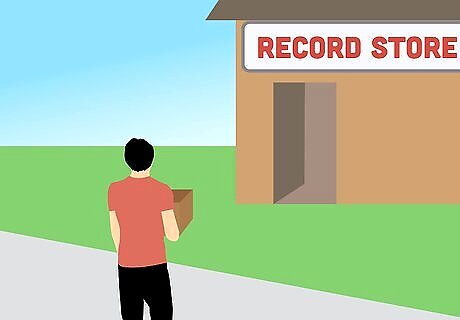
Take your records to an appraiser or collector. When searching for an appraiser or collector, look for someone who is certified by the American Society of Appraisers, the Appraisers Association of America, or the International Society of Appraisers. Appraisers charge either a flat rate or an hourly rate of anywhere from $200 to $400 based on their expertise. Upon completion, they will provide you with a written report detailing the records, the procedure used to value it, and it’s current value. To guarantee a fair price assessment, seek the opinion of an appraiser before taking an item to a local antique store or dealer. The appraiser has no conflict of interest since they are ethically unable to make an offer for purchase after appraising an item. Avoid an appraiser or collector who asks for a percentage of the item’s value versus an hourly rate or flat fee.
Create an Advertisement for Your Records

Determine where you will sell your items. There are many places, both online and around your town, where you can sell your records. You can choose to sell each record individually, or as a collection. Some postings are free, while others will require a fee. Craigslist is probably the easiest and fastest way to sell your records. The ad is free, and you will typically get local responders within the same week. Craigslist allows some room for bargaining and trading. eBay allows you to list items in an auction style posting or for a “buy it now” price. It is free to post but additional posting features require fees. The Goldmine site allows you to post a free ad to sell all items at once to a single record dealer who utilizes the site as well. The site also allows single ad postings.
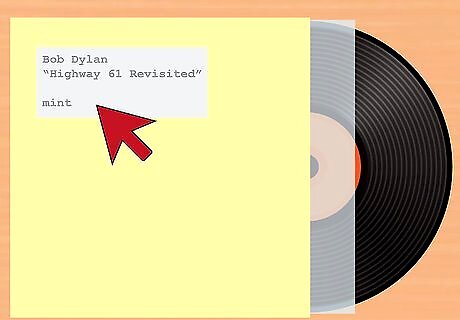
Write detailed descriptions of each record you want to sell. This should include: album name, artist, full track listing, and label and number under which the record was released. Also detail the condition of the album, being sure to only use “mint” or “new” if the album has never been used. Include any special identifying information such as a rarity or first press of the album.
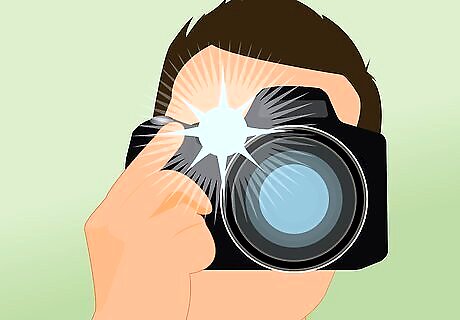
Upload clear photos of the records. Using a good-quality, high digital camera, take photos of the front and back of the sleeve, as well as the album itself. Set the photos against a blank backdrop (such as a white sheet), and avoid using flash which can cause a reflection. Get as close as possible while taking the pictures to show as much detail as possible.
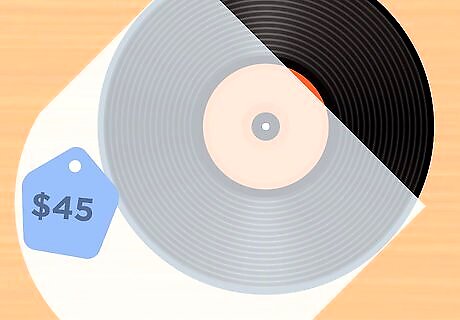
Set a fair price. This price should be based on your prior research of the item such as common eBay prices or appraisals. Allow some room for bargaining, particularly if you're selling on Craigslist which is known for haggling. Even if you opt for an auction site, you still have to include your minimum acceptance price.
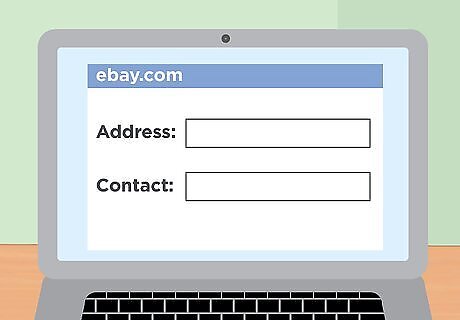
Include contact information. Most sites will allow you to set your contact preferences such as personal email, email through the website (such as eBay), or phone. Ensure that interested buyers have an easy way to contact you to finalize sales and payment information.




















Comments
0 comment